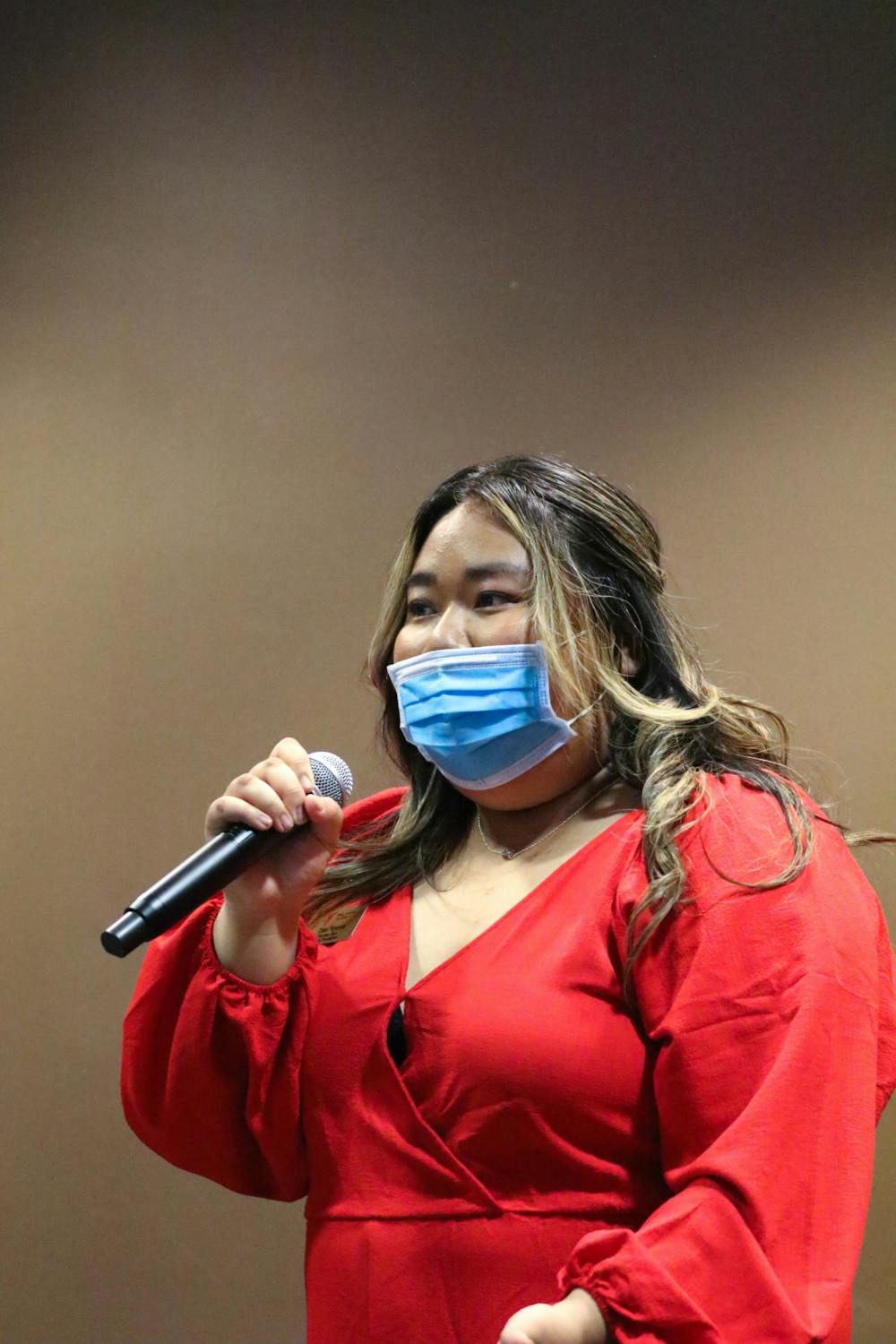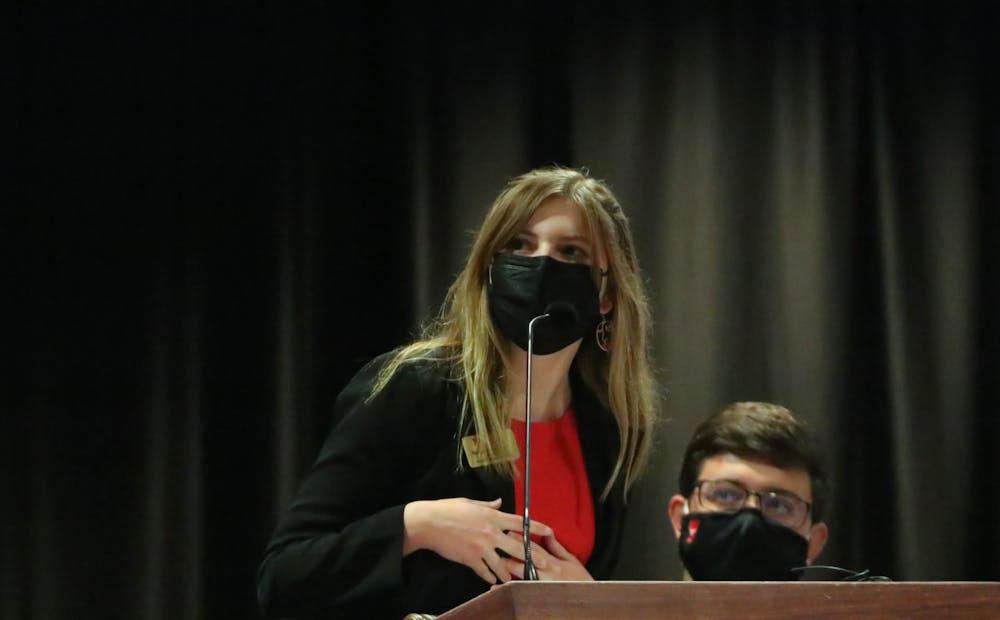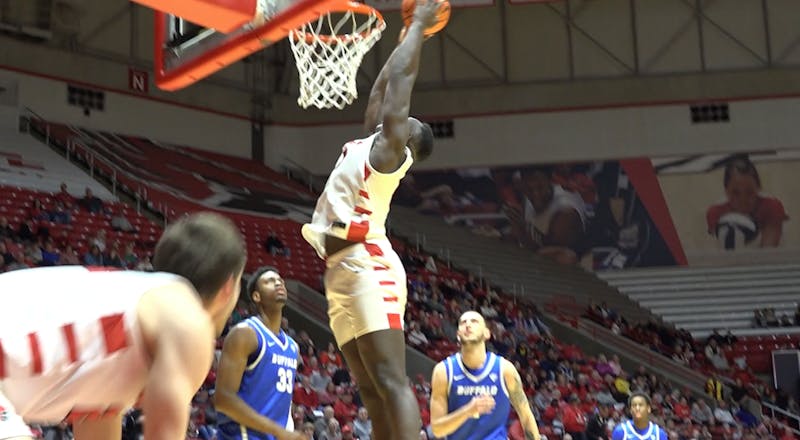Ball State’s Student Government Association (SGA) discussed an elections code amendment that proposed to set a voter minimum in executive board elections that was met with controversy from senators and members of the student body.
Multiple people came to observe the senate meeting in response to the proposed amendment to the elections code. This amendment proposed to set a voter minimum of 2,000 votes in executive board elections if passed. If the minimum was not met, the amendment stated the senate would nominate executive board members itself.
RELATED: Ball State SGA introduces new Elections Code amendment
Many senators and students voiced their disagreement with the amendment. Chief of staff Joseph Gassensmith said the SGA president’s cabinet members denounced the amendment in their latest business meeting.
“We find that this amendment undermines the integrity of the election process, the duties of the elections commissioner and the confidence of the student body in the executive board,” Gassensmith said.
Gassensmith also said “there [is] no precedent of this type of amendment at any other MAC [Mid-American Conference] school.”

Student Government Association (SGA) President Tina Nguyen speaks during the discussion portion of the Nov. 17 SGA meeting held in the L.A. Pittenger Student Center. Nguyen spoke about her concerns regarding an amendment that would require a minimum of 2,000 students vote in SGA elections. Eli Houser, DN
This amendment was authored in response to Ball State’s low voter turnout for the SGA executive board elections in the past three years. Co-authors Senator Grant Wilson and President Pro Tempore Davis Odom wrote the amendment to incentivize executive candidates to campaign more to the student body.
However, many senators and students felt this amendment would deligitimize their votes and Senator Cody York said it would silence the student body. York echoed other representatives’ concerns on this issue.
SGA Elections Commissioner Kate Swope also expressed concerns.
“A lot more word has gotten out because of it, but it has damaged SGA’s reputation,” Swope said.
The amendment failed 11-28.
Swope introduced new publicity ideas to help inform the student body of SGA and of upcoming elections.
Before winter break, she plans to have tabling events at three different locations. The events are planned for Nov. 30 from noon – 4 p.m. at the Atrium, Letterman Building and the Student Center Tally.
“It is a very common issue on campus where people don’t even know what SGA is and what it does,” Swope said.
Swope also plans to schedule a presentation at a town hall where senators will speak about SGA’s past, present and future. She also spoke on the importance of advertising for SGA and getting more involved with Housing and Residence Life and resident assistants to increase voter turnout.
Senators also elected the next President Pro Tempore, Monet Lindstrand. The three nominees were Lindstrand, Jessea Vaughn and Auston Everman.
Lindstrand won the election, and she will begin her duties as President Pro Tempore in the spring 2022 semester.
Another amendment that was voted on was over the requirements for executive board positions. Since it was introduced at the last meeting, two new amendments were made to the original amendment based off concerns voiced at last week’s meeting.
The first newly proposed amendment was to have a presidential candidate attend at least two semesters of classes at Ball State before running for office. The second amendment was to have the vice presidential candidate attend at least three semesters of classes, which proposes to make the vice president have the same requirements as the current presidential candidate.
The point of these amendments was to have the president and the vice president have the same requirements. The senate will decide whether two or three full semesters is more fit for the candidates.
SGA ran out of time to vote on the amendment, which will be voted on at the next meeting on Dec. 1.
Contact Hannah Amos with comments at hannah.amos@bsu.edu or on Twitter @Hannah_Amos_394.





The Daily News welcomes thoughtful discussion on all of our stories, but please keep comments civil and on-topic. Read our full guidelines here.